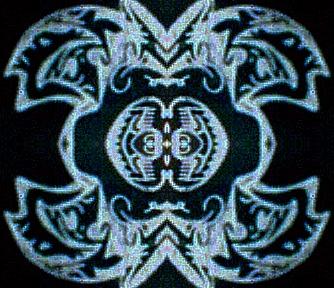Page of Pentacles - ESTJ
Extraverted
Thinking with
Introverted Sensing
STRENGTHS
Inclined to focus on the outer world of people and external events, ESTJs are clear thinking, assertive, goal directed individuals. Not slow to speak their mind, they are focused, to-the-point and decisive in their dealings with others. Task orientated, they approach problems in a systematic, methodical and structured way. Focusing on hard facts and data, they tend to view life from an objective, down-to-earth perspective. Logical, analytical and orderly in their thinking, they expect competence and efficiency in those around them. Having a strong sense of duty and responsibility, they believe it is important to adhere closely to established systems and procedures. However, their emphasis on Thinking will cause them to question tasks and procedures that are not based on a sound logical analysis. Not particularly interested in the abstract or theoretical, they will attend systematically to tasks, with a commitment to complete them on schedule and to the required standard.
INTERPERSONAL RELATIONSHIPS
Orientated towards the extraverted world of people and events, ESTJs communicate with people in a straightforward, direct way. Inclined to cool logical analysis, understanding others' feelings may not come naturally to them. However, this will not prevent them from taking the lead in forming new relationships, with ESTJs being sociable, lively and outgoing. When working in teams they will wish to have a clearly defined role, and to be set well defined, achievable goals. Direct and matter-of-fact in their dealings with others, they will be quick to express their own views and opinions. Task focused and goal directed, they naturally come to the fore in group settings, planning and organizing those around them. Dependable and reliable, they will focus on getting things done, and will be clear about their interpersonal roles and responsibilities. They will generally prefer to learn about a subject by engaging in lively informed debate or discussion, rather than by reading or through private study.
THINKING STYLE
Having a clear, logical and analytical thinking style, ESTJs are known for their ability to focus on the detailed aspects of a task or problem. Not inclined to abstract debate, they tend to reject the purely theoretical, choosing instead to focus on finding practical solutions to real-world problems. Basing their opinions on a logical analysis of observable facts and hard data, which they have directly perceived through their Sensing function, they are likely to be steadfast in their opinions. Goal directed, orderly and methodical in their work, they value efficiency, decisiveness and clarity of thought. Being pragmatic, realistic and down-to-earth, they do not seek change for change's sake. Rather, they critically examine new procedures to evaluate whether these offer clear benefits over tried-and-tested methods. Focusing on the present, they prefer tasks where they can produce immediate, measurable results. Being achievement orientated, they are prepared to take tough decisions when necessary.
HOW OTHERS MAY SEE YOU
Well organized, dependable and reliable, they will be trusted to see tasks through to the end. Known for their sound, sensible and realistic judgement, colleagues will respect their ability to analyze problems in an objective, logical way. People who are less assertive than them may on occasion view them as being a little overbearing, or even somewhat opinionated at times. However, this is to misunderstand their straightforward, direct interpersonal style and their tendency to focus on the observed facts in a cool, analytical manner. Conscientious and task-focused, they will be respected for their ability to persevere with work that requires a systematic and methodical approach. However, some colleagues may on occasion misinterpret their detail-conscious, pragmatic realism as indicating a lack of imagination. Gregarious and outgoing, they will take an active interest in all that is going on around them. Socially confident, self-assured and plain speaking, their colleagues will seldom wonder where they stand with them.
Knight of Pentacles - ISTJ
Introverted
Sensing with
Extraverted Thinking
STRENGTHS
Inclined to focus on the inner world of thoughts and ideas, ISTJs often prefer to work quietly, on their own. In fact they may sometimes find conversation and discussion an unwanted distraction from their desire to complete tasks in a systematic, methodical way. Focusing on facts and practical realities, they tend to view life from an objective, distant and somewhat detached point of view. Logical, analytical and orderly in their thinking, they will be motivated to find practical, concrete solutions to well defined problems. Having a strong sense of duty and responsibility, they believe it is important to adhere closely to established systems and procedures. However, their emphasis on Thinking may cause them to question tasks and procedures that are not based on a sound logical analysis. Steadfast, loyal and dependable, they approach tasks with a calm, steady perseverance, and will be committed to complete their work on schedule and to the required standard.
INTERPERSONAL RELATIONSHIPS
Orientated towards the introverted world of thoughts and ideas, ISTJs may sometimes need to be drawn out in social settings. Not usually the first to put forward their own views and opinions, they may prefer carefully to think through all the options before contributing to a debate or discussion. When working in teams they will wish to have a clearly defined role, and to be set well defined, achievable goals. Task focused and goal directed, they may feel more at ease working with facts and hard data, than when managing interpersonal relationships. Inclined to cool logical analysis, understanding others¹ feelings may not come naturally to them. Dependable and reliable, they will focus on getting things done and, as a result, it may take others a while to warm to them. They will generally prefer to learn about a subject by reading, or through private study, rather than by engaging in lively, informed debate or discussion.
THINKING STYLE
Having a clear, logical and analytical thinking style, ISTJs are known for their ability to focus on the detailed aspects of a task or problem. Not inclined to abstract debate, they tend to reject the purely theoretical, choosing instead to seek practical solutions to real-world problems. Basing their opinions on a logical analysis of observable facts and hard data that they have directly perceived through their Sensing function, they are likely to be steadfast in their opinions. Goal directed, orderly and methodical in their work, they have little interest in approaching problems from novel, theoretical perspectives. Being pragmatic and realistic, they do not seek change for change¹s sake. Rather, they prefer to examine new procedures in an objective manner, and will only accept new approaches if they offer clear benefits over tried-and-tested methods. Marshalling facts in an orderly and systematic manner to support their arguments, they may be at their best when communicating in writing, rather than in interpersonal contexts.
HOW OTHERS MAY SEE YOU
Well organized, dependable and reliable, they will be trusted to see tasks through to the end. Known for their sound, sensible and realistic judgement, colleagues will respect their ability to analyze problems in a systematic and logical manner. However people who are, on the surface, more emotional than them may on occasion have difficulty understanding their reliance on hard logic, and their tendency to focus on the stated facts in a given situation. Independent and self-reliant, they will be respected for their ability to persevere with tasks that require attention to detail. However, some colleagues may on occasion misperceive their detail-conscious, pragmatic realism as indicating a lack of imagination. While some colleagues may at times see them as being a little reserved, distant or even somewhat aloof, this is to misunderstand their private inner-directed nature and tendency to view life in an objective, analytical way. Outwardly calm, serious and composed, even when under pressure, they will tend to keep their feelings and personal values to themselves.
Queen of Pentacles - ISFJ
Introverted
Sensing with
Extraverted Feeling
STRENGTHS
Sensitive to others' needs, ISFJs are kind, considerate and thoughtful. Having a strong sense of duty and responsibility, they are committed and loyal to their colleagues and friends. Pragmatic and detail-conscious, they approach problems in a systematic, methodical way. Having an Introverted focus of attention they will actively seek time on their own so that they can complete their tasks free from the distraction of other people. Although they tend to focus on hard facts and practical realities, they do not view life from a cool, detached or overly analytical point of view. Rather, having a deep respect for others' feelings, they are supportive, co-operative and altruistic. Realistic and down-to-earth, they respect established systems and procedures. Loyal and committed, they focus on the practical, detailed requirements of the task at hand, which they will be motivated to complete on schedule and to the required standard. Willing to offer help, they are usually happy to listen to others' points of view.
INTERPERSONAL RELATIONSHIPS
With their emphasis on Feeling, ISFJs are helpful, co-operative and keen to work for the common good. Due to their inner directed nature, they have a tendency to observe those around them in a quiet, thoughtful manner. While not in the least cool or distant, they may nonetheless on occasion need to be drawn out in social settings. Not inclined to force their own views on others, they will be valued for their quiet, thoughtful comments and observations. When working in teams they will wish to have a clearly defined role, and to be set well-defined, practical and achievable goals. When managing others they will try to do so by seeking consensus, as they dislike discord, disagreement and disharmony. Dependable and reliable, they will focus on getting things done in ways that maintain good working relationships. They are likely to be at their best when communicating on a one-to-one basis with colleagues who value their practical realism and structured approach to problems.
THINKING STYLE
Using their Sensing function directly to perceive the known facts in a given situation, ISFJs recognize the importance of attending to the important details that others may sometimes overlook. Pragmatic and realistic, they will be concerned to find practical, achievable solutions to real-world problems. Considerate and thoughtful, their decisions will take into account the personal needs of their colleagues and friends. Orderly and methodical in their work, they may become frustrated with colleagues whose work does not meet their own high standards. Dependable and reliable, they do not seek change for change¹s sake. Rather, they will carefully examine new systems and procedures to consider whether they offer clear benefits over tried-and-tested methods. Marshalling facts in an orderly and systematic manner to support their arguments, they like to take things one step at a time. Thus, they may prefer to work through their ideas on paper, rather than brainstorming them with colleagues.
HOW OTHERS MAY SEE YOU
Well organized, dependable and reliable, they will be trusted to see jobs through to the end. Loyal and committed, they will be respected for their ability to persevere with tasks that require a structured, organized approach. However, some colleagues may on occasion misperceive their unassuming nature, and their detail-conscious, pragmatic realism, as indicating a lack of imagination. Helpful, courteous and co-operative, they will have a strong customer service orientation. Thoughtful, considerate and happy to oblige, others may on occasion try to take advantage of their kindness and good will. Willing to listen, and sensitive to others¹ feelings, their colleagues will value the quiet support and encouragement they offer. Modest, and not inclined to be outspoken or opinionated, more assertive colleagues may at times mistakenly overlook their quiet, insightful observations. If colleagues take unfair advantage of their genuine offers of help, this may generate feelings of resentment or even anger.
King of Pentacles - ESFJ
Extraverted
Feeling with
Introverted Sensing
STRENGTHS
Sensitive to others' needs, ESFJs are warm, friendly, thoughtful individuals. Having an Extraverted focus of attention, they take a keen interest in the people and events around them. Supportive, co-operative and altruistic by nature, they dislike discord, disagreement and conflict, and will actively seek to promote harmony. Having a strong sense of duty and responsibility, they are loyal to friends and colleagues. Valuing tradition, and needing to feel that they belong, they will be committed to the organization they work for, and to their family and friends. Pragmatic and detail-conscious, they approach problems in a systematic, methodical way. Although they tend to focus on the hard facts in a given situation, they do not view life from an overly cool, detached or analytical point of view. Realistic and down-to-earth, they respect established systems and procedures. Focusing on the practical, detailed requirements of a task, they will be motivated to complete tasks on schedule and to the required standard.
INTERPERSONAL RELATIONSHIPS
ESFJs are helpful, co-operative individuals who are keen to work for the common good. Being sensitive to others' feelings, and taking a genuine interest in those around them, they will actively work to promote harmony, consensus and compromise among their colleagues. Dependable, reliable and conscientious, they will focus on achieving results in ways that maintain good working relationships. When working in teams, they will wish to have a clearly defined role, and to be set well-defined, practical and achievable goals. Enjoying organizing people, tasks and situations, they will wish to contribute to the team effort by producing detailed plans and schedules. Keen to please those around them, they will generally be happy to go along with others' wishes and opinions, unless these clearly disagree with strongly held core values and beliefs. Showing a deep, genuine empathic concern for others, colleagues will often turn to them for emotional support, understanding and encouragement.
THINKING STYLE
Using their Sensing function directly to perceive the known facts in a given situation, ESFJs recognize the importance of attending to the important details that others sometimes overlook. Orderly and methodical in their work, they are more concerned to get to grips with the procedural aspects of a task, rather than try to understand it from a theoretical perspective. Thus they aim to find practical, achievable solutions to concrete, real-world problems. Being pragmatic and realistic, they do not seek change for change's sake. Rather, they carefully examine new procedures to consider whether they offer clear benefits over tried-and-tested methods. Marshalling facts in an orderly and systematic manner to support their point of view, they like to take things one step at a time. Caring, considerate and thoughtful, their decisions will take into account the personal needs of their colleagues and friends. Comfortable with routine, they focus on the present, and base their decisions on hard facts and data.
HOW OTHERS MAY SEE YOU
Warm, friendly and happy to oblige, ESFJs are courteous and tactful in their dealings with others, and have a strong customer service orientation. ESFJs enjoy attending to those little personal details that make people feel valued. Thus, their friends and colleagues will appreciate the genuine interest and concern they show in those around them. However, as they need, and actively seek, encouragement and approval from others, they may quickly become disheartened if their colleagues show indifference, unkindness or a lack of concern for their feelings. Moreover, if colleagues fail to appreciate their genuine offers of help, this may generate feelings of resentment. Well organized and reliable, they will be trusted to see tasks through to the end. Loyal, dependable and committed, they will be respected for their ability to persevere with work that requires attention to detail. However, some colleagues may on occasion misinterpret their detail-conscious, pragmatic realism as indicating a lack of imagination and flexibility.








